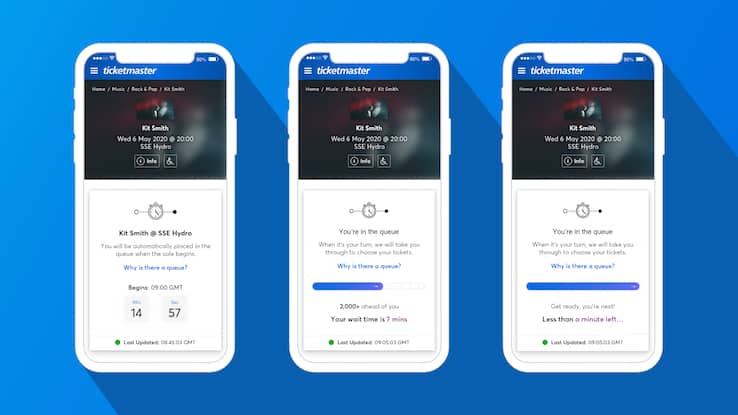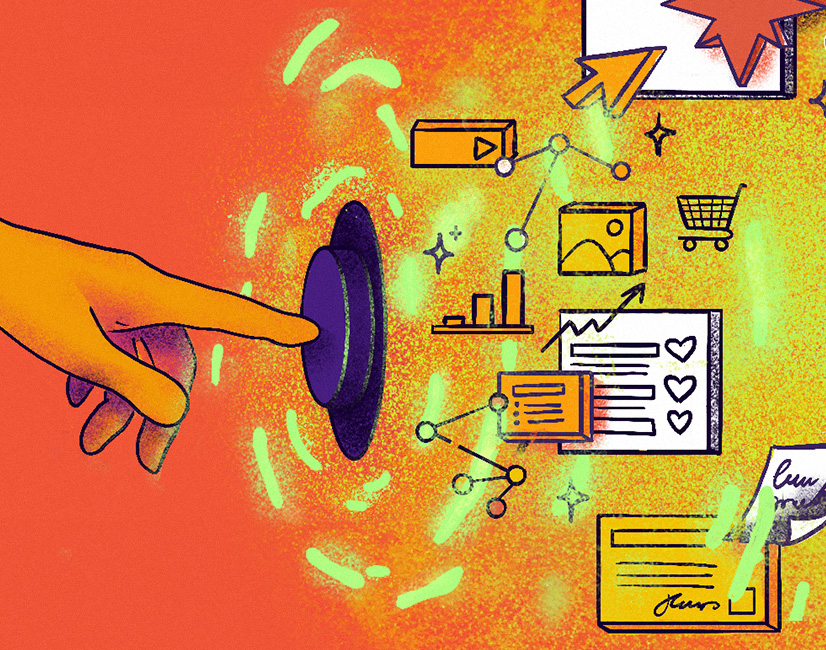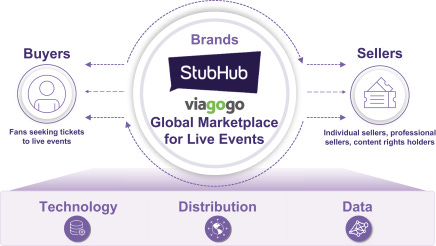
Artificial Intelligence Tickets: The Future of Smart Event Management
In today’s fast-evolving digital landscape, Artificial Intelligence (AI) has revolutionized how we experience, manage, and interact with event ticketing systems. The integration of AI into the ticketing ecosystem has transformed everything from customer experience to scalability, fraud prevention, and data-driven decision-making. In this article, we will explore the future of AI-powered ticketing platforms, their capabilities, benefits, and their profound impact across various industries.
Table Of Content
- What Are Artificial Intelligence Tickets?
- Key Features of AI-Powered Ticketing Systems
- 1. Intelligent Chatbots and Virtual Assistants
- 2. Predictive Analytics for Ticket Demand
- 3. Fraud Detection and Prevention
- 4. Hyper-Personalized Marketing Campaigns
- Benefits of Artificial Intelligence in Ticketing
- 1. Enhanced User Experience
- 2. Operational Efficiency
- 3. Dynamic Pricing Models
- 4. Real-Time Reporting and Analytics
- Applications Across Industries
- 1. Entertainment and Live Events
- 2. Corporate Events and Conferences
- 3. Tourism and Travel
- 4. Education and Online Learning
- Top AI Ticketing Platforms in 2025
- a. Ticketmaster SmartQueue AI
- b. Eventbrite AI Tools
- c. StubHub AI Dynamic Pricing Engine
- d. Universe (A Ticketmaster Company)
- e. Tix.ai
- f. Secutix with AI-Powered Access Control
- g. See Tickets AI Suite
- h. Fevo AI-Powered Social Selling
- How to Choose an AI Ticketing Solution
- Future Trends in AI Ticketing
- 1. Voice-Based Ticket Booking
- 2. AI-Powered Facial Recognition Entry
- 3. Blockchain-Backed Smart Tickets
- 4. Augmented Reality (AR) Integration
- Conclusion
What Are Artificial Intelligence Tickets?

Artificial Intelligence Tickets refer to ticketing systems and solutions enhanced by AI technologies. These systems leverage machine learning algorithms, predictive analytics, chatbots, and automation to manage the ticketing lifecycle—from customer interaction to post-event analysis.
By combining AI with traditional ticketing platforms, businesses can streamline operations, eliminate manual work, and deliver hyper-personalized experiences to users.
Key Features of AI-Powered Ticketing Systems
1. Intelligent Chatbots and Virtual Assistants
AI-powered ticketing platforms often include chatbots capable of managing real-time interactions with users. These bots can:
-
Answer FAQs about events.
-
Guide customers through the purchase process.
-
Provide real-time updates (venue changes, event cancellations, etc.).
-
Offer multilingual support.
This reduces the workload of customer service agents while offering round-the-clock assistance.
2. Predictive Analytics for Ticket Demand
Using predictive modeling, AI can forecast:
-
Ticket demand spikes.
-
Optimal pricing strategies.
-
Audience engagement trends.
Event organizers can dynamically adjust their pricing models or marketing efforts based on historical and real-time data, maximizing both attendance and revenue.
3. Fraud Detection and Prevention
AI systems continuously monitor purchasing patterns to identify:
-
Scalping bots.
-
Fake identities.
-
Multiple purchases from the same IP address.
By analyzing user behavior and patterns, AI ticketing platforms can proactively block fraudulent activities, improving ticket authenticity and user trust.
4. Hyper-Personalized Marketing Campaigns
AI enables ticketing platforms to gather user behavior insights and send personalized recommendations and offers based on:
-
Purchase history.
-
Browsing behavior.
-
Social media interactions.
This improves conversion rates and enhances the customer experience significantly.
Benefits of Artificial Intelligence in Ticketing
1. Enhanced User Experience
AI helps in crafting a seamless and engaging experience for users, from the moment they visit the platform to post-event feedback collection. AI learns user preferences, making recommendations that match individual interests, increasing user satisfaction and loyalty.
2. Operational Efficiency
Automating repetitive tasks like confirmation emails, ticket delivery, event reminders, and refunds reduces human error and saves time, making the ticketing system more efficient and scalable.
3. Dynamic Pricing Models
Just like airline or hotel bookings, AI algorithms can adjust ticket prices based on:
-
Demand.
-
Seat availability.
-
Buyer behavior.
-
Time left until the event.
This leads to maximized revenue without compromising the user experience.
4. Real-Time Reporting and Analytics
Organizers and marketers gain live insights into sales, demographics, preferences, and engagement. With this, businesses can:
-
Optimize future events.
-
Refine marketing campaigns.
-
Target high-value customers.
Applications Across Industries
1. Entertainment and Live Events
From concerts to sports events, AI-powered ticketing ensures smoother access control, fraud prevention, and accurate seat mapping. Systems can predict which locations will sell out faster and recommend ticket bundles or VIP upgrades.
2. Corporate Events and Conferences
AI streamlines B2B event management by:
-
Auto-generating badges.
-
Recommending networking matches based on attendee profiles.
-
Managing attendance tracking and analytics.
3. Tourism and Travel
In the tourism industry, AI can automate booking systems for guided tours, exhibitions, museums, and amusement parks, ensuring personalized itineraries and optimized crowd control.
4. Education and Online Learning
Webinars, workshops, and virtual events benefit from AI ticketing that can manage user authentication, access control, and post-event certification, all while collecting valuable engagement data.
Top AI Ticketing Platforms in 2025
As artificial intelligence continues to reshape the ticketing landscape, a few pioneering platforms have emerged as industry leaders by incorporating cutting-edge AI capabilities into their services. These platforms are not only optimizing ticket sales and user experience but are also setting new standards for automation, personalization, and security. Below, we take a deeper look at the top AI ticketing platforms dominating 2025.
a. Ticketmaster SmartQueue AI

Ticketmaster, a global leader in ticket sales, has implemented a highly advanced AI-powered system called SmartQueue. This technology intelligently manages the queuing process during high-demand ticket sales by:
-
Identifying bots and fraudulent traffic in real time and filtering them out.
-
Assigning users to a dynamic digital queue based on factors like time of arrival, user behavior, and session integrity.
-
Using AI-driven demand forecasting to suggest best pricing tiers and seating options.
In 2025, Ticketmaster has further enhanced its AI suite to offer facial recognition entry, voice-assisted customer service, and automated waitlist activation, improving both buyer convenience and platform trust.
b. Eventbrite AI Tools

Eventbrite continues to be a favorite for independent organizers and mid-sized events. In 2025, it has introduced a robust AI recommendation engine that:
-
Analyzes historical sales data, user interaction, and local event trends to recommend optimal event timings and pricing.
-
Suggests personalized marketing campaigns using audience segmentation and behavior analysis.
-
Predicts potential drop-off points in the registration process to help organizers improve conversions.
Eventbrite’s AI-powered social media ad tools also auto-generate creative content and select the best-performing audience targets—making it an excellent platform for event marketers focused on ROI.
c. StubHub AI Dynamic Pricing Engine

StubHub, a global ticket resale marketplace, leverages AI and machine learning to power its dynamic pricing engine. In 2025, its AI platform offers:
-
Real-time pricing suggestions based on market demand, venue capacity, event popularity, and seasonal trends.
-
Seller-side tools that alert users when ticket prices are at their peak value, maximizing profit opportunities.
-
Buyer-facing AI agents that assist with best seat suggestions and notify users when prices drop or rise.
StubHub also integrates with AI-based fraud detection systems, flagging suspicious activity and offering buyers verified tickets only.
d. Universe (A Ticketmaster Company)

Universe, now a sub-brand of Ticketmaster, specializes in self-service ticketing for creators and small businesses. Their 2025 upgrade introduces:
-
AI-driven event page optimization, which automatically adjusts page layouts, descriptions, and visuals for higher engagement.
-
A personalized checkout experience, where users receive custom seat bundles, discount codes, or upsell offers.
-
An integrated AI CRM assistant that compiles attendee preferences and generates smart mailing lists, tailored offers, and follow-up campaigns.
Universe is ideal for small-to-mid scale organizers seeking both power and simplicity, with full AI support from planning to post-event reporting.
e. Tix.ai

Tix.ai is a rising star in the AI ticketing space, built from the ground up to be entirely AI-driven. Its key 2025 features include:
-
Natural Language Processing (NLP) chatbot assistants that provide a conversational ticket-buying experience across web, mobile, and messaging apps.
-
Emotion AI that reads user sentiment based on interactions and adapts communication style in real-time to reduce abandonment.
-
Full API integration with major CRMs, payment processors, and marketing tools for a seamless experience.
Tix.ai is particularly well-suited for tech-forward organizations and startups looking to deliver a futuristic, AI-powered user journey.
f. Secutix with AI-Powered Access Control

Secutix, a cloud-based ticketing engagement platform, is redefining event access management in 2025 with:
-
AI-enhanced biometric scanning for ticket validation, improving security and reducing entry time.
-
Real-time crowd control analysis using computer vision and predictive modeling, which alerts organizers of potential bottlenecks.
-
Advanced AI dashboards that track sales trends, fan behavior, and ticket resale activity with actionable insights.
Secutix is trusted by large-scale venues, museums, and sports arenas for its secure and scalable infrastructure.
g. See Tickets AI Suite

See Tickets has expanded its capabilities in 2025 by introducing a comprehensive AI suite designed for both artists and event producers. Their AI system includes:
-
A demand-based seat allocation algorithm that boosts ticket availability for real fans, not scalpers.
-
Real-time performance metrics for each campaign, analyzed and optimized by AI to improve ticket sales continuously.
-
Integration with AR previews allowing users to see virtual views from different seats before purchasing, driven by AI-rendered environments.
Its versatility and user-centric design make See Tickets a strong competitor in the global market.
h. Fevo AI-Powered Social Selling
%20(1).jpg)
Fevo takes a unique angle by combining social commerce and AI for group ticketing. Its 2025 platform excels in:
-
Facilitating group purchases where AI recommends friend groups, pricing offers, and incentives based on user history.
-
Embedding AI into social share modules, tracking which channels generate the most conversions.
-
Utilizing behavioral AI to suggest group discounts, shared seat selections, and exclusive bundles based on past purchase trends.
Fevo is a favorite for concerts, sporting events, and college festivals looking to boost engagement through virality and peer influence.
How to Choose an AI Ticketing Solution
When evaluating an AI-enhanced ticketing system, consider the following:
-
Scalability – Can it handle thousands or millions of ticket buyers simultaneously?
-
Security – Does it include robust fraud prevention and encryption mechanisms?
-
Integration – Does it work seamlessly with your CRM, payment gateway, and marketing tools?
-
Customization – Can the system be tailored to suit your brand and audience?
Opting for a platform that supports omnichannel marketing, multi-currency support, and custom event pages will deliver better ROI.
Future Trends in AI Ticketing
1. Voice-Based Ticket Booking
Integration of AI voice assistants like Alexa or Google Assistant will soon allow users to book tickets through voice commands, improving accessibility.
2. AI-Powered Facial Recognition Entry
Facial recognition tech will soon replace traditional barcodes or QR codes at venue entries, minimizing contact and boosting security.
3. Blockchain-Backed Smart Tickets
AI and blockchain together can create tamper-proof, traceable tickets that ensure ownership and legitimacy, reducing scalping and reselling issues.
4. Augmented Reality (AR) Integration
AI ticketing systems could soon offer AR previews of venue seats, letting buyers visualize their view before purchasing.
Conclusion
The integration of Artificial Intelligence into ticketing systems marks a revolutionary shift in how events are organized, marketed, and attended. From real-time insights to fraud protection and personalized customer journeys, AI ticketing solutions are the future of smart event management. Organizations embracing these innovations are not only improving user experience but also gaining a competitive edge in a saturated market.







No Comment! Be the first one.